For more than a century, Pilipinas Shell has been supporting the growth of local economies across the country by providing opportunities in education, training, and entrepreneurship. The energy company has pursued best practice livelihood projects that respond to the needs of different sectors to help them adapt, innovate and thrive.
Recognizing that local enterprises are the bedrock of a healthy economy, Pilipinas Shell, through its social arm Pilipinas Shell Foundation, Inc., has helped communities establish livelihood opportunities that enable their families to achieve productivity and financial security. Its training programs also upskill Filipinos, equipping them to improve in their job prospects or the building of their own homegrown businesses.
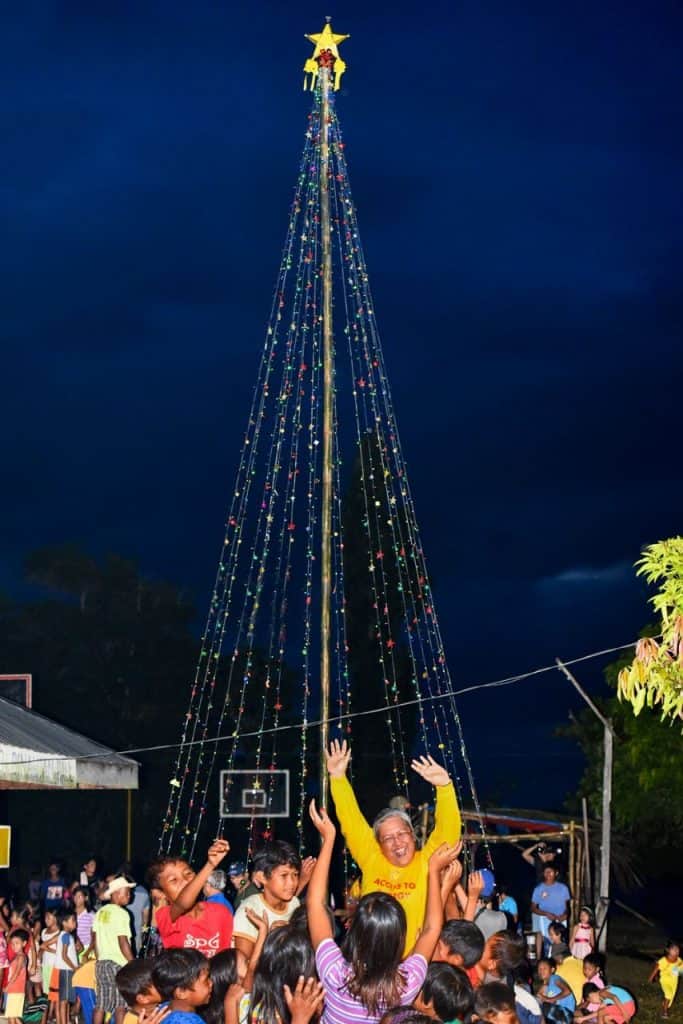
“Maximizing Pilipinas Shell’s network and platform, we are taking a multi-sectoral approach to help uplift the lives of the underserved and disadvantaged sector here in the Philippines, especially those in Shell worksites and host communities,” says Serge Bernal Vice President for Corporate Relations, Pilipinas Shell Petroleum Corporation (PSPC).
Women empowerment
In Batangas City, Shell through PSFI partnered with the Silangan Ibabao Batis Bulihan Araneta Proper (SIBBAP) Multipurpose Cooperative to conduct its Maghanapbuhay sa Bahay (Magbuhay) training sessions with the community’s housewives. These women were taught technical skills on sewing and given the resources needed to spur business initiatives while integrating them into a bigger socio-economic ecosystem. The training sessions have also been opened to non-Ambulong residents and non-cooperative members.
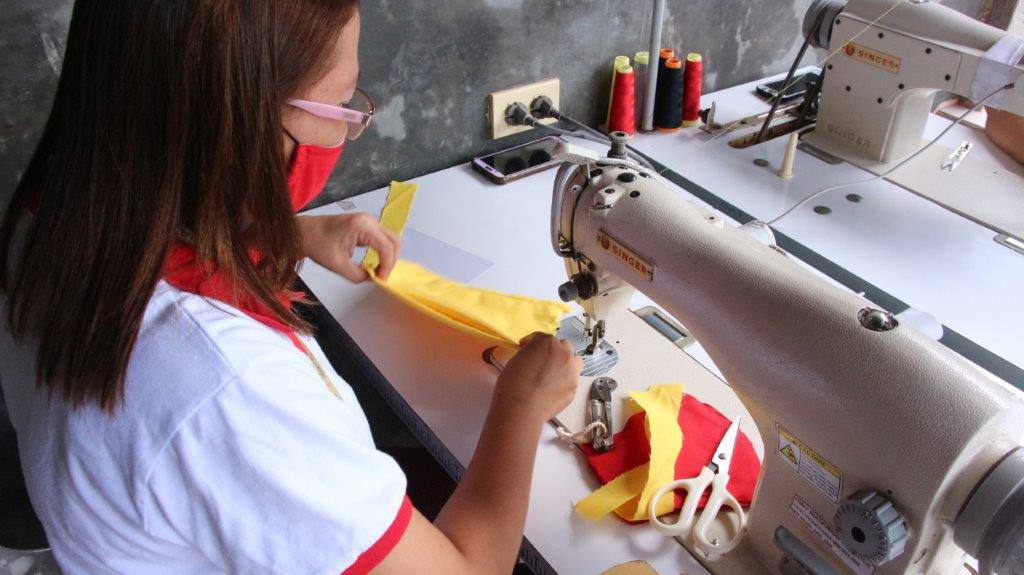
Meanwhile, PSFI also supported the rehabilitation and livelihood needs of the women communities in Tacloban and Marawi, while promoting their indigenous styles of weaving through the production of face masks that are essential to a health-conscious public coping with the pandemic. As a result, this has strengthened the community’s economic capacity as these women now support their family’s financial needs. The program has also opened a path for them to discover their own profound sense of purpose and redefine the narrative around their communities.
Innovating how farmers do business
Another sector that Pilipinas Shell has been empowering are the coconut and copra farmers in Quezon Province. Project COCONUT (Collaboration for Coconut Productivity and Nurturing Farmers’ Trade) established a cooperative amongst the farmers, teaching them how to innovate the way they do business and improve their financial literacy.
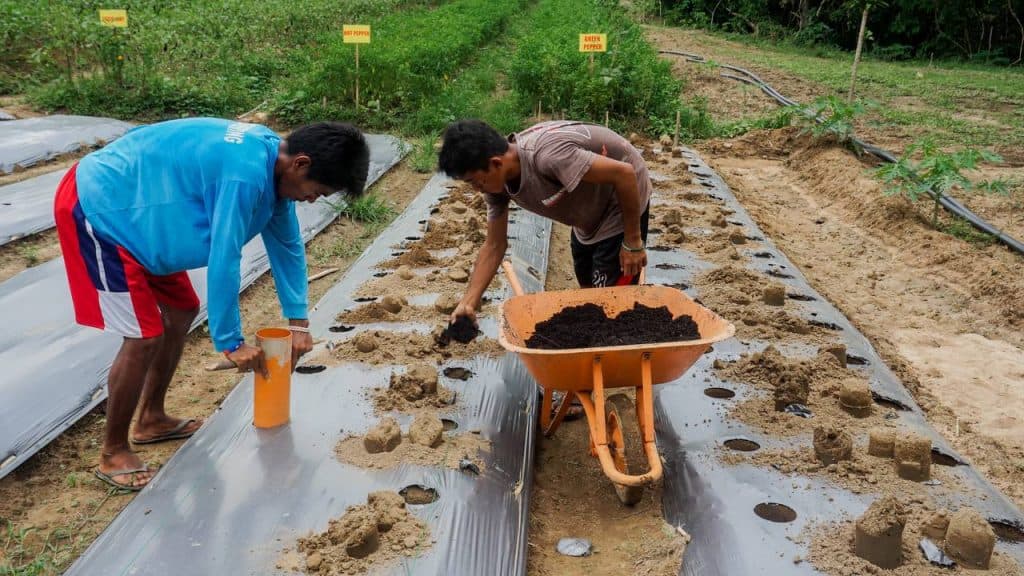
Shell has promoted upcycling coconut scraps into coconut oil, oleochemicals, and biofuels, or even into jewelry and other ornaments to create more alternative revenues. With two existing COCO Hubs, Shell is keen to ensure that the initiative is adopted by other farmers, spreading a clean and sustainable means of livelihood for agri-businesses in the region.
Meanwhile, PSFI introduced the Palawan Eco Agro Park (PEAP) to introduce organic farming to a region that conventionally imports products. The result increased farm productivity and food sustainability reduced the prices of vegetables.
A circular economy for the environment
Currently dubbed as a sachet economy, the Philippines’ high reliance on single-use plastics has drastically impacted its natural resources. Reversing the tide, Pilipinas Shell is shifting emphasis and effort to a circular economy which promotes the concepts of sharing, reusing, and recycling resources to supplement the needs for livelihood.
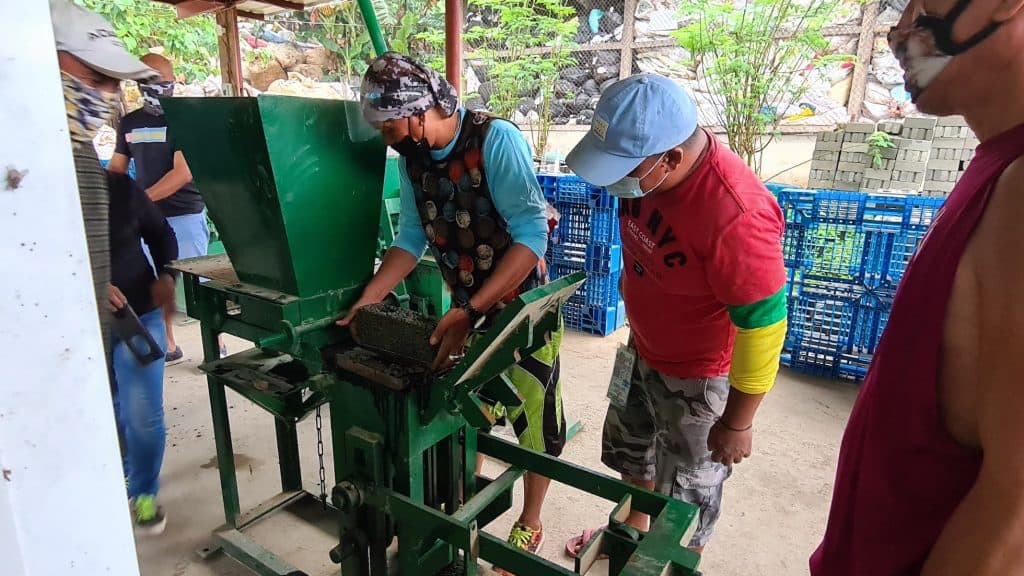
Through a partnership with Green Antz Builders, Pilipinas Shell established the Ecobrick Hub in Cagayan De Oro to upcycle plastics which can then be used for the construction of other establishments. One project accomplished through this initiative is Pilipinas Shell’s first Shell Mobility Station in the world that is made out of eco-bricks, upcycling over 1,200 kilograms of plastic waste. The initiative also encourages nearby communities to recycle to reduce the number of plastics going into landfills.
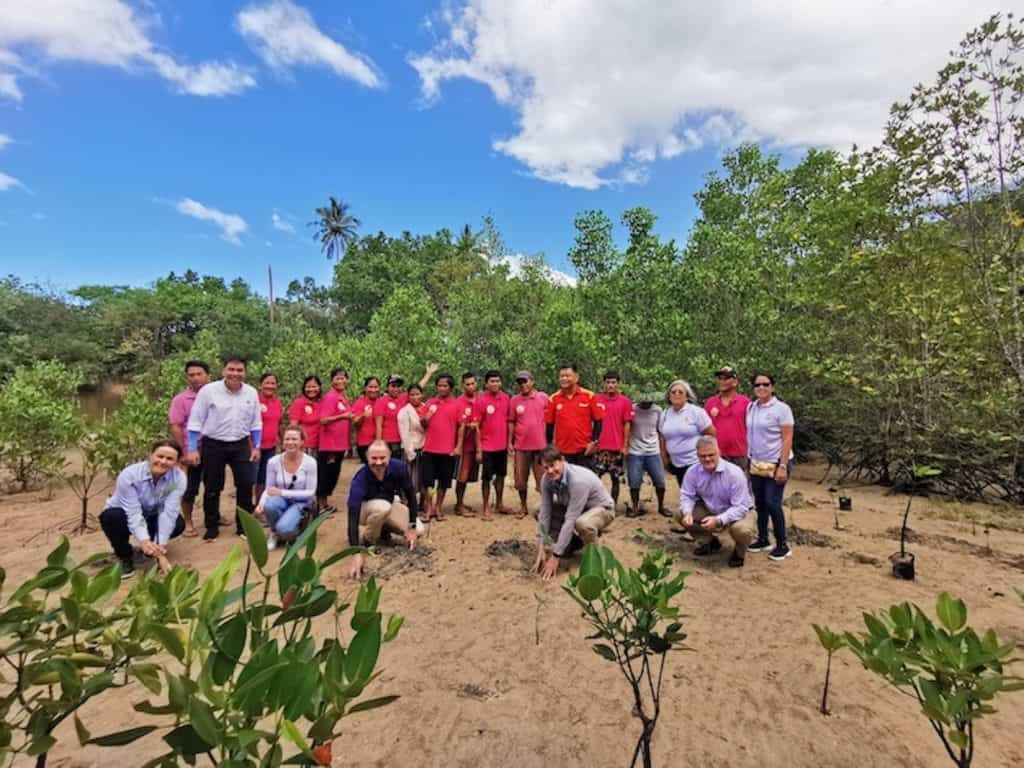
In another initiative that nurtures nature while promoting tourism, Pilipinas Shell’s community-based program TANDIKAN (Turismo at Negosyo Dulot ng Ingat Kalikasan) preserves the pristine natural wonders of Palawan. It provides locals alternative livelihood opportunities as destination guides or in the production and marketing of tourist-related products like T-shirts and natural soaps.
Introducing innovation to remote communities
As modern society moves forward with technology, the Philippine Indigenous People (IPs), though small in number, recognize their need for energy and alternative sources of livelihood to survive in a changing world. With PSFI’s ISIP (Integrated Support for Indigenous People), these communities can evolve at a pace that suits them, meeting their needs while not drastically changing their lifestyles.
Meanwhile, Shell’s Access to Energy (A2E) program reaches out to far-flung and off-grid communities. The IPs of Puerto Princesa were provided the means to receive clean and reliable energy to support their livelihood, health, and education.
Pilipinas Shell took a step further and taught locals how to manage and sustain their own energy. The Batak tribe, known for their intricately designed baskets, were able to produce and sell more because electricity enabled them to work at night. These same baskets now ornament resorts and other establishments in Puerto Princesa.
Fueling the future
Pilipinas Shell’s efforts in nation-building also include training and networking initiatives that empower various sectors, from entrepreneurs to students, to develop their own robust future.
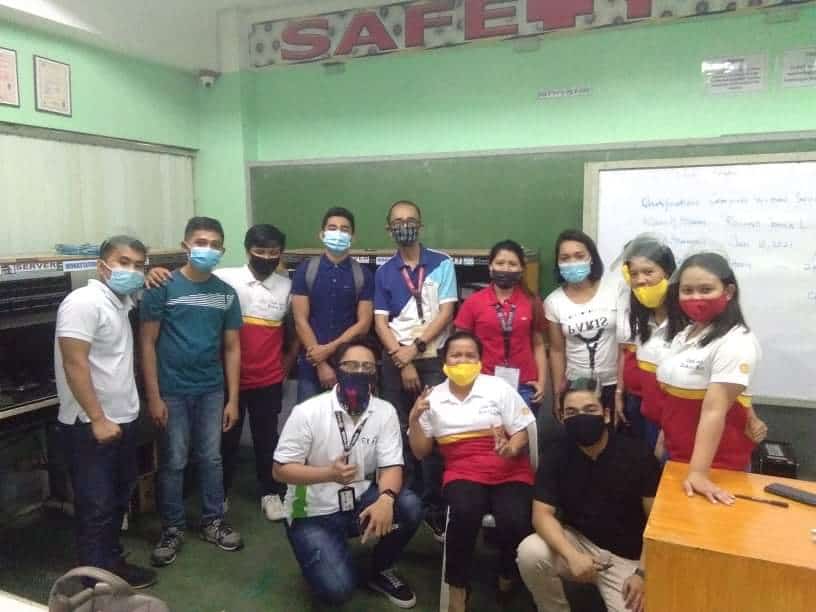
Through the Department of Trade and Industry One Town One Product program, Pilipinas Shell’s vast mobility network across the country has become a platform where entrepreneurs can sell their products. Examples are the Shell Mobility stations near their communities that spur local economies.
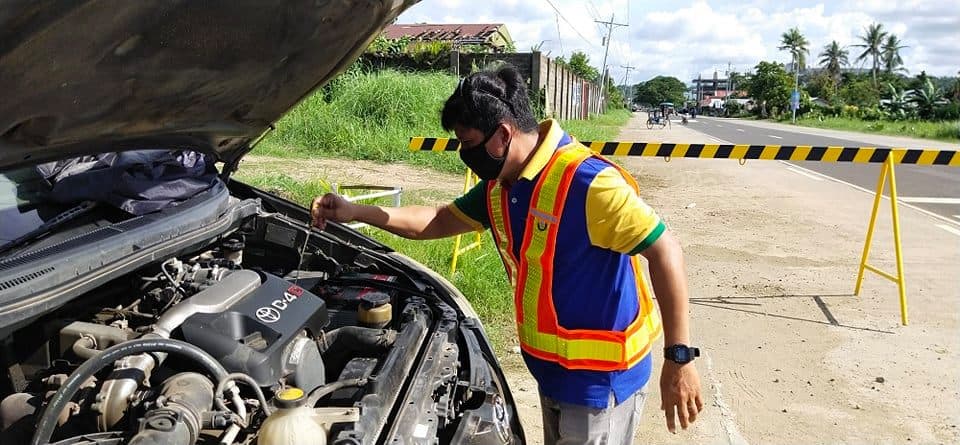
Meanwhile, Pilipinas Shell’s Gas Mo Bukas Ko (GMBK) scholarship program aimed to improve the lives of Shell retail station crew, and dependents of workers in the public transport by helping them receive the necessary education to lead productive lives. To date, thousands have graduated from technical-vocational courses through GMBK scholarships.
Empowering startups
With an eye towards the future, Shell LiveWIRE’s Acceleration program that helps spur Filipino ingenuity and resourcefulness among the younger, next-generation of talents is again searching for community enterprises and tech startups that leverage innovation and sustainable business models. In recent years, it has selected energy-based innovators, agri-business producers, textile artisans and craftspeople, and digital marketing creative talents; Shell LiveWIRE provides them mentoring and coaching from local and international pool of business experts, additional capital funding support, and opportunities for their businesses to be integrated into Shell’s value chain. Those who are interested can register through https://www.shell.com.ph/energy-and-innovation/make-the-future/shell-livewire-philippines.html.
Pilipinas Shell’s numerous programs over the years have put importance to its commitment to support communities in the country. To know more about how these programs help keep the Philippines moving forward, tune in to Shell’s Future Festival—a 4-part series of public virtual conferences that gathers leaders, stakeholders, and advocates to tackle issues crucial to national development, discuss best practices and create long-standing solutions for all sectors in Philippine society. You can register now for the next episode to be part of the discussions about the future of Filipino communities and how we can further support their needs for livelihood.

